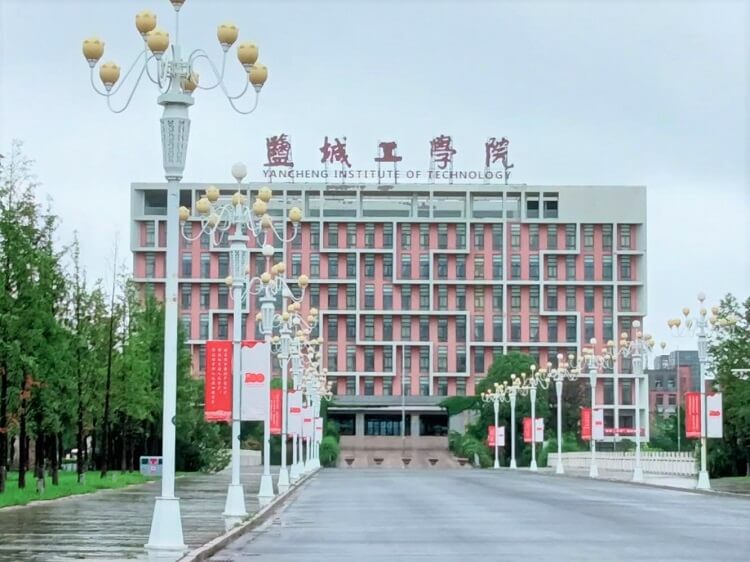In this guest post, ex-teacher Mark Johnson shares his views on the biggest challenges facing English teachers in China.
You’ve landed!
After hours upon hours of sitting in a flying metal tube, stealing snippets of sleep and wrestling with the wrapping on your in-flight meal, you’ve finally made it.
Riding a wave of jet lag and excitement, you meet up with your luggage at the baggage carousel. Head through customs. Smile at security as they stamp your passport, check your working visa.
But for many expats – TEFL first-timers with little or no prior teaching experience – the real journey is just beginning.
Drawn to China’s promise of full-time wages for part-time hours, that first step inside a Chinese classroom can be daunting.
And without warning, the bubble can burst. Quickly.
Here are the five biggest challenges you’ll face as one of China’s newest, shiniest foreign imports.
1. Terrible textbooks (I mean, truly terrible!)
The textbook. That bastion of knowledge. The hallmark of your school days. Friend of the studious, enemy of the slacker.
In China, the textbook is neither friend nor foe – it’s something else entirely. At best it’s a burden. At worst, a hindrance.
In all likelihood it will not have been written by a native speaker, or even in English at all.

English teachers can struggle with the school-supplied textbook in China.
Most English textbooks in China have been written in Chinese and run through a version of Google translate.
It will be riddled with all sorts of horrific errors, from basic spelling and grammar mistakes to the downright nonsensical.
And trust me, it isn’t easy explaining to the other teachers why “Can I play you football” doesn’t make sense.
Luckily, many schools in China are quite flexible and will let you introduce your own flair into the classroom.
Don’t be afraid of moving away from (or burning) the textbook.
Build your lessons around some interesting things from your own country like money, food and music.
2. Silent classrooms
This is what scares us as teachers, right? I mean, this is what truly terrifies us.
You’re in class, up there doing your thing in front of the blackboard, you’ve been speaking for roughly the first third of the lesson, and then you do it.
You ask a question. And nothing.
A few whispers break out, some nervous giggles and dry coughs. You ask again. And still nothing.
A sea of blank, earnest faces staring back at you, waiting for the silence to break.
Quiet classrooms are a challenge for English teachers in China.
Learning a second language is hard. Like, really hard.
Chinese students, more than any others I’ve encountered, do not like to make mistakes.
It's therefore common to have a class full of students too afraid to speak a sentence for fearing of getting a word wrong.
And since you can’t teach them if they won’t speak, you’ll all be going nowhere fast.
The trick is to create a relaxed atmosphere. Tell students that they can make mistakes, that it’s good to make mistakes.
Once they hear this from a teacher – even though it goes against everything they’ve been taught growing up – they’ll loosen up a little.
3. A lack of lateral thinking
This is one of the biggest challenges facing English teachers in China.
The Chinese education system is geared towards teaching students to pass exams. It’s a cram-and-memorize racket.
Therefore, the use of creativity, well… it doesn’t really exist inside the Chinese classroom.
Just over 30 years ago, individuality in China was forcibly punished. Any sense of self-expression was met with stares of suspicion.
Although things are getting better now, encouraging students to be creative can be a difficult obstacle for China TEFL teachers to overcome.
Schools are geared towards teaching students to pass exams.
In the West, where we’ve been fortunate enough to have been raised on the prose of literary titans, creativity in the way we describe things is second nature.
In China, a country where many great novels remain banned, the creative spark is missing.
This can lead to problems when you’re teaching students to describe what they’ve seen, where they’ve been, and what people look like.
Hearing various students describe different people and places in exactly the same way is something that you’re going to have to get used to.
4. Pushy parents
I’m sure you’ve heard the phrase ‘tiger mother’.
You may have come across it before you left, read about it in some magazine in the dentist’s waiting room, picking at that filling that’s always coming loose.
When you teach in China, you’re going to meet them. Lots of them.
Parents have a god-like level of influence in Chinese schools.
For that reason, no child in any classroom in the whole of China struggles academically! (I mean, of course they do. You know it. I know it. But even if you see it, you better not say anything about it.)

Chinese parents can be very involved in their child's education.
If you take one thing away from this list, only one tip, let it be this: never, ever fail a child!
It’ll be your fault. Or the school’s fault, who’ll then make it your fault.
You’ll receive criticism. The school will receive complaints. You may even be asked to put on a ‘demo’ class in front of said parents.
All very stressful, all very avoidable.
In short, treat every parent and child like a returning deity.
And grade on a curve. A really big, arbitrary curve where failure is nigh on impossible.
5. Workplace inequality
Money talks in China.
You better believe that the shiny, upmarket private language centre that you’re working for is as hungry for money as Donald Trump in a presidential election campaign.
And you, with your pale skin tone and Western features, are the money-maker!

Money talks in China.
You’ll be pampered. You’ll receive a nice modern apartment on a top floor. A hefty salary. Less working hours than a retired pensioner.
In all honesty, the perks of teaching in China are pretty good.
But your Chinese co-workers will be earning less. A lot less. Some schools treat native teachers as though they are disposable.
The difference between you and them is massive, and they know it.
If you want to get along with your co-workers, pick up a dinner or bar bill every once in a while.
And avoid talking about all that dollar you banked last month.
Do you agree that these are the biggest challenges facing English teachers in China?







